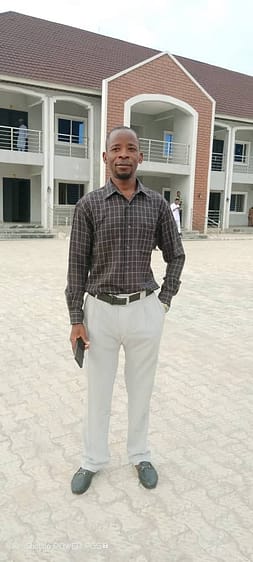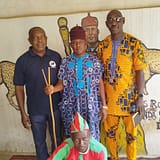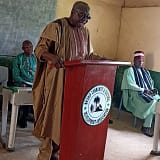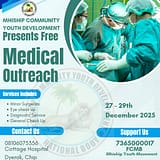
Mr. Patrick Tongret Makes History: Orally Translates New Testament in Mhiship.
By Chris Miyaptong Data.
Everything they say is possible; with hard work, patience, resilience and commitment. This is the summary that can best describe another illustrious son of Mhiship land, Mr. Patrick Tongret.
He successfully and singlehandedly produced the New Testament of the bible in Mhiship dialect with quality voice over which can be called oral translation.
Mr. Patrick Tongret hails from Mundung of Mhiship Chiefdom of Pankahin LGA of Plateau State, a professional accountant by training yet picked the difficult task to volunteer and learn how to translate the bible orally to benefit his tribesman.
When asked of his motivation to go into the training, Mr. Tongret noted that he wanted to place Mhiship nation on the global map, narrow the gap between the majority and minority languages and help the Mhiship nation get recorded documents that could be access to stop the tribe from going into extinction through memorable instrument and records
The journey to achieve this feat did not come on a platter of gold, Mr. Patrick Tongret had to undergo months of training on Mother Tongue Bible Translation in Port Harcourt. Even when others backed down, Mr. Tongret through sacrifice, love and zeal to promote his cultural heritage, passed through the rigorous training to translate the gospel of Christ to his people in the language they best understood.
It is now on record that Mhiship dialect has officially translated orally the New Testament through the superb effort of Mr. Longret, a sign of better things to come to Mhiship land in the bible translation efforts.
The works of Mr.Longret is already going public with series of oral translation from his delectable voice of the new testament of the bible.
The achievement made by Mr.Longret is already consolidating the effort made by the likes of Edna Paul, head of Oral Mother Tongue Bible Translation among other great Mhiship sons and daughters giving their best in the bible translation of Mhiship dialect.
The project was implemented by Youths with a Mission (YWAM) in collaboration with the University of the Nations.




